SHARING INFORMATION ON PROGRESS REPORT





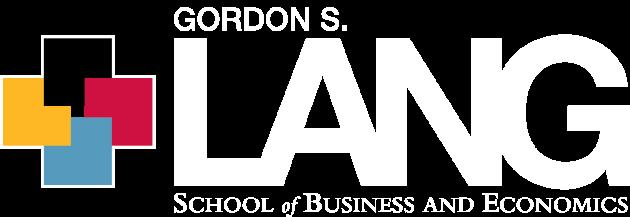

As a Champion and signatory of PRME, the Lang School of Business and Economics is committed to being a champion of responsible business education, within Canada and throughout the world. This commitment is reflected in our fourth SIP Report.
The past two years have been an exciting time within the Lang School. Our prestigious MBA program was ranked #1 in Canada and our BComm program was ranked #2 by Corporate Knights for our focus on developing responsible business leaders. Most recently, Lang earned the AACSB accreditation, joining a global network of business schools committed to academic and research excellence.
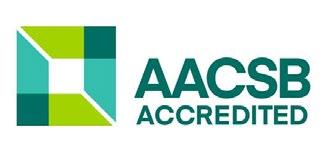

We wear these distinctions with pride, and accept the responsibility, as educators, to equip tomorrow’s business leaders with the tools needed to make meaningful progress towards the UN’s Global Compact. Our community of students, alumni, faculty and staff tirelessly champion our mission of using business as a force for good. This means, ensuring businesses prosper while communities thrive and our carbon footprint is minimized.
As deans, we have a responsibility to the future to ensure more business schools integrate sustainability practices in their curricula so they reflect the changing demands of the business world. We need to drive higher sustainability standards through education The next generation of leaders has the power to make the world a more sustainable place. We need to inspire this kind of leader ship and be a catalyst for this transformation right now.
The stories you will read in this report are just a sample of the ways in which we contribute, as a business school, to the Sustainable Development Goals. As educators, we aim to inspire our students to collectively work towards achieving the se Goals as t hey provide a framework to find innovative, sustainable and real solutions to some of the world’s greatest social challenges. I encourage you to visit our website to learn more about how Lang is Canada’s business school for developing responsible leaders.
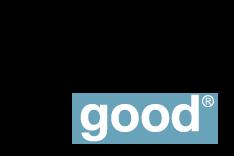
Thank you,
Dr. Lysa Porth, Dean , Gordon S. Lang School of Business and Economics, University of Guelph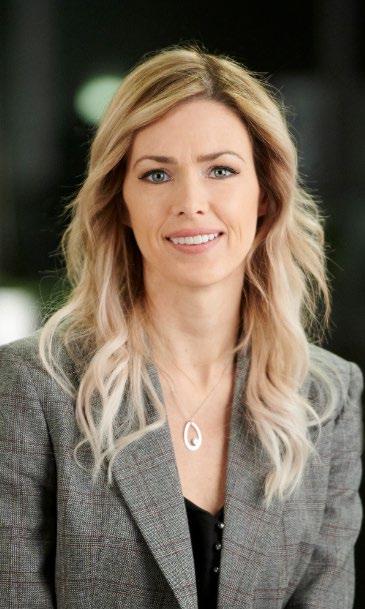
We are delighted to present our 2020 SIP Report for PRME, outlining our sustainability related activities from our last report in 2018. This report includes stories of our alumni, students and faculty who are making an impact across the world. We have included the appropriate PRME Principle for each story in this report.
We are excited to include key initiatives, research and profiles of our community using business as a force for good. At the heart of our mission is a newly launched centre which examines how business education and research can support the UN Global Compact. Lang’s new Institute for Sustainable Commerce at Guelph aims to support Lang’s vision to inspire and develop leaders for a sustainable world, advance research and education in corporate social responsibility, the Sustainable Development Goals (SDGs) and other business sustainability-related initiatives.
Other important activities and news from Lang include the following:
• The Lang MBA was ranked #1 in Canada (#6 globally) by Corporate Knights Better World MBA Ranking. From business ethics to green supply chains, to measuring environmental impacts of operations, themes of sustainability and corporate social responsibility are woven into all programs at Lang.

• Lang’s Bachelor of Commerce program was ranked #2 in Canada by Corporate Knights undergraduate business school rankings
• Lang faculty were profiled in highly ranked journals including the Journal of Business Ethics, Organization & Environment, Journal of Cleaner Production, Business Strategy and the Environment and Accounting Research Journal.
• Lang faculty have received funding form the Social Sciences and Humanities Research Council (SSHRC) for research in sustainability, the impact of SDGS on supply chains, food security and business models during crisis.
• Students across the University of Guelph can add a minor in sustainability, adding valuable knowledge to their undergraduate degree.

• The Lang Students’ Association hosted its annual, highly successful Lang Sustainability Conference, bringing undergraduate students from across Canada to learn about business sustainability.
• In 2019, Lang was named a PRME Champion once again.
• Lang engaged in a number of different PRME activities throughout this reporting cycle, and the d irector of Lang’s Institute for Sustainable Commerce is the Vice-Chair of the PRME North America Chapter
• Lang launched a new scholarship to support students who have demonstrated social entrepreneurship and innovation through academic and community experience.
We highly value our engagement with PRME, particularly as a PRME Champion school and we look forward to our continued commitment to sustainability and responsible management education through our three pillars of research with impact , active learning and community eng agement
 Dr. Rumina Dhalla, Inaugural Director, Institute for Sustainable Commerce at Guelph Gordon S. Lang School of Business and Economics University of Guelph
Dr. Rumina Dhalla, Inaugural Director, Institute for Sustainable Commerce at Guelph Gordon S. Lang School of Business and Economics University of Guelph
The Lang School at the University of Guelph is redefining leadership and business education to respond to our changing world. We believe that ethical and collaborative business leaders are unquestionably the future.


Our vision is ‘to be recognized locally and globally for our commitment to developing future leaders for a more sustainable world’.

Reflecting the University of Guelph's commitment to ‘Improve Life’, Lang's vision represents a foundational belief that business can and should be a ‘force for good’ in the world. This translates into our mission, wherein we seek to:







Push the frontiers of knowledge through research in business, management and economics, building on industry foundations unique to the Univer sity of Guelph.
Foster the long - term success of our students’ career aspirations, organizations and the betterment of society through research -inspired and socially- relevant educational programs, which develop teamwork, critical- thinking and problem- solving skills.
Encourage an ethos of community engagement and ethical and responsible leadership in a complex and ever- changing world.
Quick stats:
We value authentic and meaningful partnerships, recognize the importance of collaboration and community outreach, and appreciate the role of others in achieving our goals.

The Lang School is committed to incorporating the Ten Principles of the UN Global Compact for Human Rights, Labour, Environment and Anti-Corruption into our strategies, policies and procedures We aim to nurture a culture of integrity and responsibility to our planet and inspire future leaders to use business as a force for good.

Partnerships and community engagement is at the heart of everything we do at Lang. We are a partner of the GRLI and participate in a number of initiatives including the Deans and Directors Cohort. Lang faculty are also on the Board of Trustees , the Guardians of the GRLI Council and members of the Sustainable Development Solutions Network Canada. Additionally, Lang’s Institute for Sustainable Commerce is a member of the Sustainability Centers Community with the Network for Business Sustainability
• The Lang Students Association (LSA) Sustainability Conference brings together over a hundred of Canada's brightest undergraduate students to explore and discuss sustainable business solutions to the soc ial, environmental and economic challenges facing our world. Now in its second year, the Conference is one of Canada’s largest sustainable-focused undergraduate case competitions.
• The Net Impact (Graduate) Chapter at the University of Guelph achieved Gold standing in 2019, a designation that is awarded to Net Impact’s top chapters across the world. Net Impact, which has chapters worldwide, aims to mobilize next -generation leaders to use their skills and careers to make a positive impact on the world.


Our MBA in Sustainable Commerce stream explores how sustainability can be integrated into modern business operations and practices. The program , which caters to working professionals, explores the operational side of corporate social responsibility, why it’s important and what leaders can do to inspire organizational and social change. In the program’s Sustainable Value Creation course, students work in groups to research an organization or industry that they believe could become more sustainable along considerations of economic, social and environment variables. These cases are carefully selected, researched, and analyzed and proposed reinventions are presented in class.
The 2018 MBA capstone course focused on the case of Natural Products Canada (NPC). NPC’s mission is to be a global leader in the multi-billion-dollar natural products sector by fostering and aligning the commercialization ecosystem to bring validated natural products t o market – faster, cheaper, and more efficiently. Lang MBA s tudents were tasked with conducting a global market assessment and exploring the strategic opportunities for NPC to expand in specific market categories, such as nutraceuticals, bio-based agri-products, animal feed additives and natural veterinary care products, and bioplastics.


Solving an ethical dilemma within a matter of hours is no easy task As part of their first-year introduction to business course, Lang students develop and present their solutions to real -world ethical problems to executives from leading national companies.
Working in groups, students are presented with different hypothetical ethical dilemmas specific to a publicly traded company that they have studied for the entire semester. Teams assume the role of senior employees and are given 36 hours to resolve the dilemma and present t heir recommendation to executives from their relevant industries in a live case competition.
In this competition, student teams need to determine how the core values and mission of the organization guides the actions of the management team. Among other factors, students need to decide how to proceed if the actions recommended by others are in contradiction with their personal values. Successfully resolving these ethical dilemmas require students to understand fully the context in which the decision is being made and requires critical thinking skills to apply the tools and decision-making criteria taught in class.

In 2018, the University of Guelph introduced a Wellness@Work program to support the well-being of all staff and faculty. By educating and promoting techniques for self -care and healthy work life balance, the program aims to create a supportive community and culture based on well-being and personal care. The goals of our programs are to provide an outlet and resource for staff and faculty to manage stress, contributing to a healthy virtual workplace.
The Lang Wellness@Work events are varied and strive to address holistic wellness focusing on physical, emotional, soc ial, intellectual and spiritual wellbeing. Wellness@Work activities are offered throughout the year, and have including lunch and Learn s essions , walking groups; book club, gratitude programs and morning meditation.

As institutions of higher education involved in the development of current and future managers we declare our willingness to progress in the implementation, within our institution, of the following Principles, starting with those that are more relevant to our capacities and mission. We will report on progress to all our stakeholders and exchange effective practices related to these principles with other academic institutions:
We will develop the capabilities of students to be future generators of sustainable value for business and society at large and to work for an inclusive and sustainable global economy.
We will incorporate into our academic activities, curricula, and org anisational practices the values of global social responsibility as portrayed in international initiatives such as the United Nations Global Compact.








We will create educational frameworks, materials, processes and environments that enable effective learning experiences for responsible leadership.



We will engage in conceptual and empirical research that advances our understanding about the role, dynamics, and impact of corporations in the creation of sustainable social, environmental and economic value.


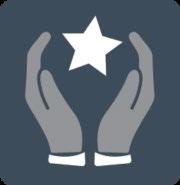
We will interact with managers of business corporations to extend our knowledge of their challenges in meeting social and environmental responsibilities and to explore jointly effective approaches to meeting these challenges.
We will facilitate and support dialog and debate among educators, students, business, government, consumers , media, civil society organisations and other interested groups and stakeholders on critical issues related to global social responsibility and sustainability.

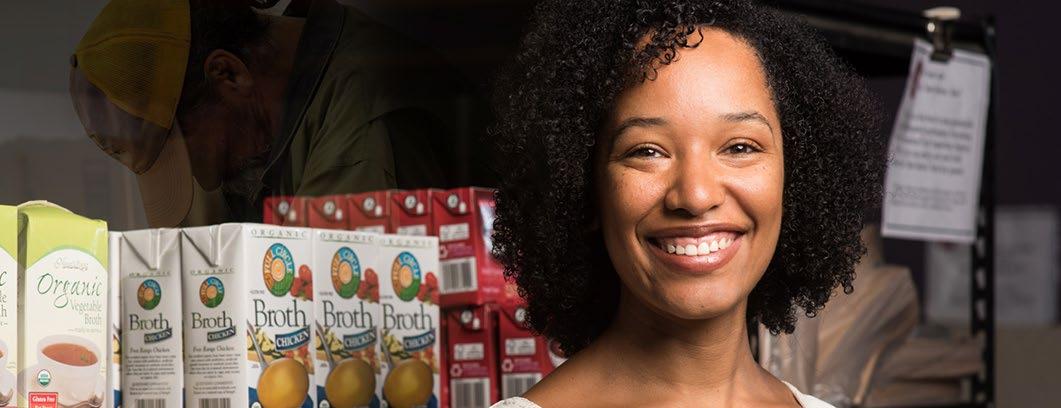
Eradicating poverty in all its forms remains one of the greatest challenges facing humanity and is the first UN Sustainable Development Goal. Lang management economics and finance grad Jaya James (BComm 01) has lived a life committed to community impact. She has worked in a variety of roles, including a policy advisor for the Ontario Ministry of Agriculture and Rural Affairs (OMAFRA), where she researched food access opportunities and distribution models across the province. After the international outcry of the Syrian refugee crisis in 2015, James put her career plans on hold, taking six months off to help mobilize approximately 800 local volunteers who had signed up to offer aid
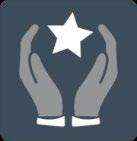
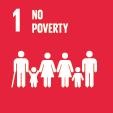

After realizing there was a much larger need in her community to help battle poverty, James refocused her passions and joined the Lakeside HOPE House as the executive director. In her role, she helps mobilize the community and provide compassionate assistance to those in need, in addition to strategic planning, finance, and budget management.
"At HOPE House, we believe in the power of community to help people achieve their dreams for a better, brighter and more secure future."
HOPE House operates and advocates on the belief that poverty, food insecurity, inequality, health and community are all interconnected. We offer services and programs that challenge the stigmas surrounding poverty and allow our community members to maintain their dignity and choice, while simultaneously providing them with tactile skills developed in a community environment; it is not about a hand -out but rather offering people a hand -up, creating long-term skills that facilitate self -sufficiency
Ron Baker -Public housing accountability in Nunavut, Canada: a proposed framework for examining accountability relationships


Kris Inwood -Growing incomes, growing people in nineteenth-century Tasmania
Philippe Lassou- Special Issue on African Accounting and Development
Stephen Koesempel- Macroeconomic effects of foreign aid and remittances: Implications for aid effectiveness studies

“Poverty is a complex issue and will not be fixed overnight, but I truly believe that by working together, much can be accomplished.”
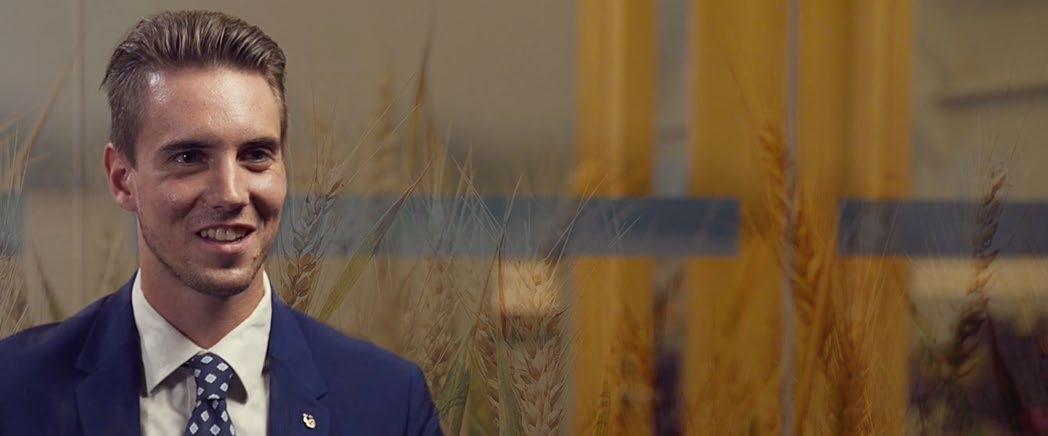
A changing climate presents new challenges for agriculture and forces farmers to adapt their operations. If Ontario farmers can pivot quickly and efficiently, they will have opportunities to grow new crops and continue producing enough food for the growing population. PhD candidate Andrew Nixon is researching the technologies.
“For famers to become more resilient and competitive in the face of climate change, managers need to be able to work effectively with farmers to introduce these new products.”
Nixon is also a co-founder in a growing start-up in the Guelph/Wellington area called Zerocerya zero -waste grocery store that delivers farm-to-table produce right to your door. The majority of Zerocery's products are either sent out in reusable and returnable jars, packed in compostable wax -free butcher wrap or in recycled paper bags. A small number of items unavailable in bulk are delivered in recyclable containers, helping reduce the customer's carbon footprint.
Zerocery received early -stage support through the Hub Incubator Program at the Lang School's John F. Wood Centre for Business and Student Enterprise. The program offers any U of G student with an early to mid-stage business idea, with the funding, mentorship and support.


Faculty Impact :

Bruc e McAdams - Food Waste and Quality of Life in Elderly Populations Living in Retirement Living Communities
Julia Christensen Hughes - Corporate philanthropy and channel impact in food security: The case “Nourish” by Campbell’s Canada
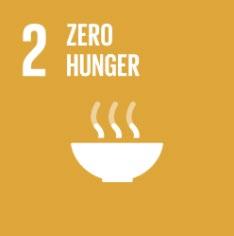

Mark Holmes - Local and organic food on wheels: exploring the use of local and organic food in the food truck industry
Sunghwan Yi - Assessment of heterogeneity in types of vegetables served by main household food preparers and food decision influencers


Marion Joppe - I mproving Sustainability through a Service Oriented Local Farmers -Hotel Supply ? An Explanatory Case Study
Lianne Foti - Food Fraud and Risk Perception: Awareness in Canada and Projected Trust on RiskMitigating Agents
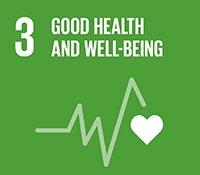
The recent events of the COVID -19 pandemic have catapulted organizations into unprecedented circumstances and unforeseen transitions to virtual work environments. Many organizations responded to these rapid and drastic changes by creating opportunities for their employees to work from home. This shift from a traditional workplace to online, digital team environments presents unanswered questions in understanding what work might look like in the future.
Professor Agnes Zdaniuk, an associate professor in leadership and organizational management with the Gordon S. Lang School of Business and Economics has an acute interest in leadership relationships, and how the COVID-19 pandemic might impact organizational relationships and leadership moving forward. In particular, what virtual work environments mean for workplace connections and relationships. With the newfound loss of in-person connection and the contextual elements of communications, how may the shift to online work influence employee’s spectrum of workplace relationships?
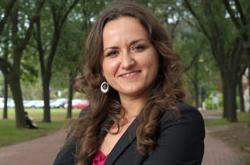
Such questions relate to a stream of Professor Zdaniuk’s diverse research portfolio. One such area of research explores how different work environments influence employee’s perceptions of mistreatment at wo rk. Recently, Professor Zdaniuk found that employees working within an inperson environment demonstrated more anti-social and revengeful behaviours than those who worked virtually. Those with who worked in virtual environments also had greater forgiveness of conflict, indicating how one’s work environment may influence their perception of mistreatment at work. These initial conclusions present a better understanding of how virtual work environments may provide more effective methods of conflict resolution and forgiveness. Paired with the understanding that virtual work may become the new normal, these findings may lead to greater support for organizational adoption of work from home strategies.
Virtual work environments also alter traditional leader-follower relationships and the ways in which these relationships are recognized. Zdaniuk’s current research on status-levelling and its influence on leadership explore how workplace status is understood at a cultural level and how it may influence leadership relationships.


In traditional work environments, the cultural indications of status appear obvious, through the assignment of the keystone corner office or a prime parking spot. However, these visual cues become removed in the transition to an online workplac e.
“What remains may be the opportunity to create more egalitarian workplaces, which may be further enhanced by using first names rather than professional titles during virtual correspondence,” says Zdaniuk.

Faculty Impact :
Bruce McAdams - Food allergy knowledge, attitudes, and resources of restaurant employees


Davar Rezania - The Effect of Coaching Practices on Psychological Contract Fulfillment of Student -Athletes
Norm O'Reilly - The Utility of Physical Activity Micro-Grants: The ParticipACTION Teen Challenge Program
The John F. Wood Centre is proving that being “entrepreneurial” isn’t just for business students
The University of Guelph is breaking down disciplinary boundaries – students no longer need to be in business to learn the creative entrepreneurial skills necessary for tackling the world’s complex problems. Innovators at the John F. Wood Centre – the Lang School of Business and Economics’ centre for entrepreneurship – are creating transformative opportunities across campus to help students meet rapidly-shifting workforce demands and give them the tools to make real-world impacts in diverse fields.
The Wood Centre does this through various offerings, with their latest endeavor being the Innovation Toolkit. This module-based training package enables faculty of any discipline to teach their students the in-demand soft skills not normally covered in traditional education but commonly possessed by successful entrepreneurs and entrepreneurial thinkers.

These skills range from active listening to critical thinking and problem solving – and they don’t only help aspiring entrepreneurs. They have the power to help individuals striving to solve complex problems, such as the Sustainable Development Goals outlined by United Nations, or even simply help students reach career goals no matter their field.


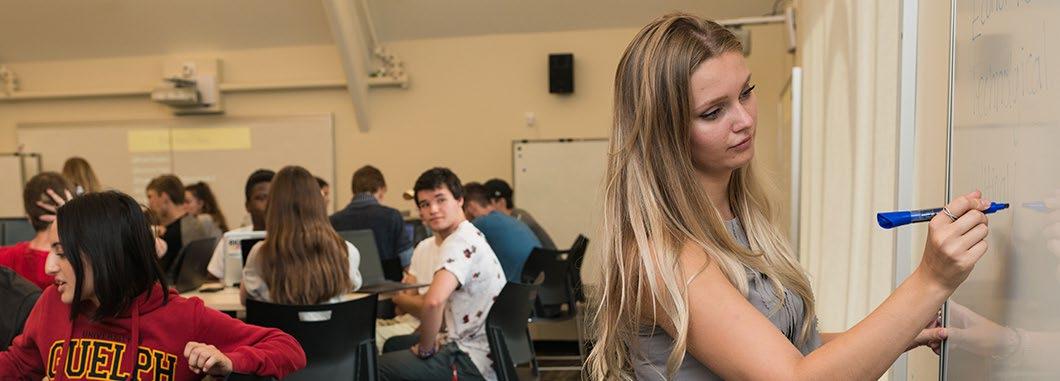
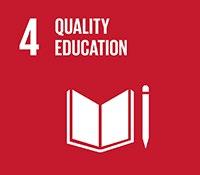
Training a large number of educationally-diverse students to tack le major issues from multiple perspectives is surely an important step towards a more sustainable and equitable planet, but the biggest barrier to doing this is often our own mental constructs.
“When people hear entrepreneurship, they tend to automatically assume that only business students can learn these skills but that’s just not the case,” says Erin Doherty, Acting Director of the Wood Centre.
The Innovation Toolkit is broken down into three modules, including;

• tools for identifying and mapping out the problem,
• tools for solution ideation,


• and tools for implementing solutions.
These tools are a compilation of established business strategies structured in a meaningful way to help facilitate learning.


Each module is meticulously designed to help students think about topics in new ways and break through their comfort zones. The tools within each module recognize the entrepreneurial skills required to holistically and effectively address problems, such as actively listening to the needs of those closest to the issue. In this way, they work to satisfy the goal of the module as well as grow the student.
For example, a tool in the problem identifying module, titled ‘Impact Gaps Canvas’, forces students to stop and look at factors in a problem that are commonly overlooked – namely, what is already in place to address them. Often times, attempts to solve the issue identified have already occurred and acknowledging them can seem unnecessary and even uncomfortable.

This tool helps to create a better understanding of the current landscape of the issue and its knowledge gaps – sometimes the best solution isn’t t o create something new but to build upon or better support an existing network of solutions. Doing this allows the individual to critically analyse the scenario and put time and energy into what has the most potential to create the desired impact.

The new Toolkit has already been successfully incorporated into the curriculum of a non-business course on campus called Agriculture and Food Issues Problem Solving. This course, based out of the Ontario Agricultural College, used the Toolkit to encourage their s enior students to create solutions for real issues in today’s food and agricultural industry. They worked through the tools to map out a complex problem, create a solution, and identify how they would implement it. Over 1,000 students across campus have engaged with the Wood Centre's Toolkit.
The Wood Centre also offers a number of workshops and events that help bring these types of ideas to life. The Wood Centre's “Improve Life Challenge” asked groups of students to build and pitch a feasible solution to a problem faced by a participating industry partner – all in a single day. Undergraduate students working in multi-disciplinary groups hit the ground running with their entrepreneurial skills to compete for first place.
The winning team found a way to limit environmental contamination caused by wastewater from Wellington Brewery - an innovative microbrewery when it comes to sustainable practice. The winning team identified how the facility could remove solid waste from their wastewater and repurpose some of it. This both limits the impact of wastewater that comes into contact with the environment and gives some newly isolated waste products a second life.

Davar Rezania - Analysing the effects of teaching approach on engagement, satisfaction and future time perspective among students in a course on CSR
Marion Joppe - Rethinking tourism scholarship beyond disciplinary convention



There's a large gap between the percentage of women sitting on corporate boards versus their male counterparts. Based on research by Lang professor Jing Lu, this has had an impact on the environmental performance in business.

Lu's research examined 857 firms from the S&P's 1500 Composite Index, which represents about 90 per cent of stock market capitalization in the U.S. Lu's research found a strong link between gender diversity on boards and environmental performance.

"An easy way for business firms to have better environmental performance is hiring more qualified female board of directors. If we have a diversified board, women and men will voice different perspectives for a complex approach to achieving sustainable goals."
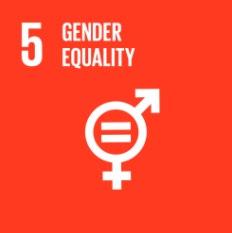
Among the industries that can benefit the most from hiring a more diverse board of directors are the oil and gas, construction, agriculture, mining, and manufacturing. Lu hopes that her research can help firms in these industries realize the value of hiring more qualified women to thei r boards and having a better chance of improving their environmental performance.
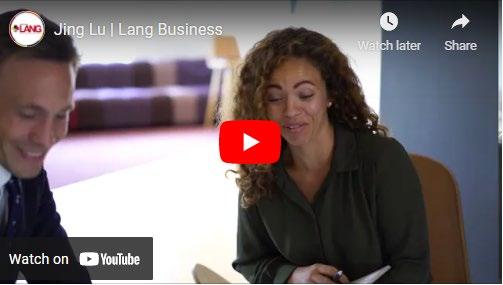

The sixth Sustainable Development Goal aims to ensure the availability and sustainable management of water and sanitation for all. For Lang alumnus Matt Wittek and his company Fill It Forward (previously Cupanion), that's exactly what their mission is all about: ensuring a healthy planet and clean water for all.
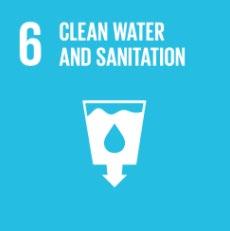
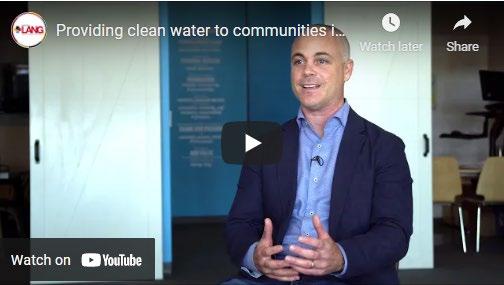



Fill It Forward started out as a company aimed at reducing the number of plastic cups and bottles in the environment and incorporates an app technology that connects a consumer's reusable bottle with their smartphone. The Fill it Forward app allows users to track their environmental impact each time they choose to refill.
In an effort to create a world where clean water is accessible to everyone, Fill It Forward is committed to working with trusted charitable partners to fund projects around the world to give clean water to a person or community in need. Each time someone refills their bottle and scans with the Fill it Forward app, the company makes a donation equal to a 'cup of clean water' and supports projects across the world to build sustainable solutions.

Since launching, Fill It Forward has provided over 4-million cups of clean water (and counting!)





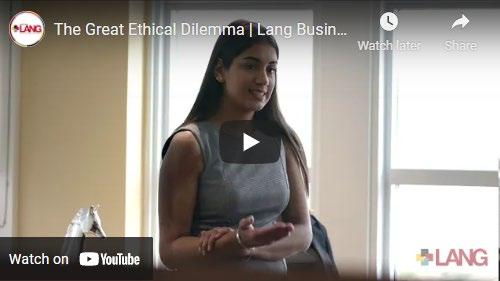

To foster responsible and ethical decision-making skills, all first-year Lang business students participate in the Great Ethical Dilemma Case Competition. The applied learning exercise sees students provide tangible solutions to an ethical challenge facing a real organization.
The competition is a culminating project at the end of their first semester. After spending the semester conducting a macro analysis of a specific industry, the students present their solutions to a panel of judges, including industry leaders and executives.


In 2019, several students represented an organization within the energy sector and were tasked with developing an ethical response that would benefit the organization while keeping environmental sustainability at the forefront.
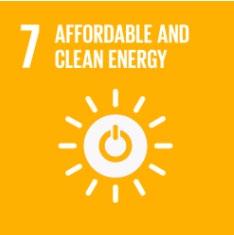

"Regardless of the industry or where you are in the world, there are always ethical issues businesses need to solve. Developing programs focused on business ethics, like the Great Ethical Dilemma, are absolutely important , " Richard Jackson, Vice-President of Spark Power, 2019 Great Ethical Dilemma executive judge

Often the main focus of investor-owned corporations is to ensure the highest return on capital. However, in order to achieve the United Nations' Sustainable Development Goals, businesses need to balance both profit and sustainable practices.
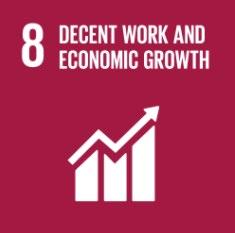
Accounting professor Daniela Senkl is exploring how corporations can adopt practices from cooperative businesses in order to continue generating economic growth and profit, while still becoming more sustainable.
"Co -operative organizations have the ability to transform our understanding of business from something that is very profit -oriented to something that has a broader understanding of community engagement or environmental aspects."
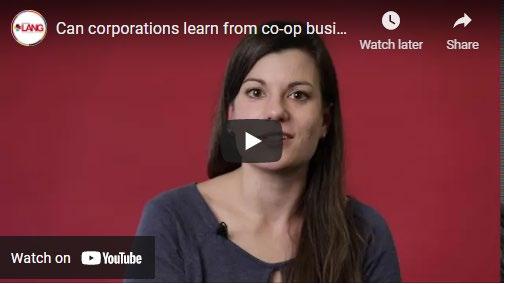



Senkl's research explores how these co-operative organizations operate and how their operational structure can be applied to investor-owned corporations to transition them towards a more sustainable future. As part of that research, Senkl focuses on how financial reporting can shed light on a company's true societal impact.

"There is an integrated reporting framework that was initially created to allow us to not only account for financial capital, but also for natural capital, human resource capital, intellectual capital, and so on. The problem is that if we still have the mindset that what we care about is only economic benefits, then all of these sustainable initiatives might be limited towards the financial bottom line."
Her research also guides accounting academics at Lang, helping to teach students to think beyond profit to realize the true impact a business can have on society.
Faculty Impact :
Marion Joppe - Understanding Repurchase Intention of Airbnb Consumers: Perceived Authenticity, EWoM and Price Sensitivity
Marion Joppe - Tourism policy and governance: Quo vadis?
Sara Mann - An ill-informed choice: empirical evidence of the link between employers' part -time or temporary employment strategies and workplace performance in Canada
Sean Lyons - Work values as a high-ordered factorial construct
Talat Genc - The Impact of Lead Time on Capital Investments


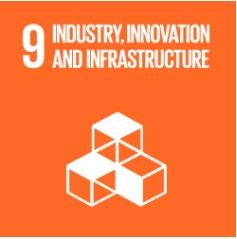
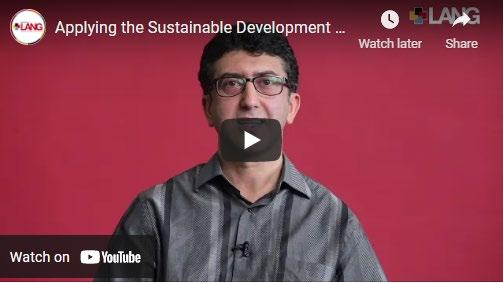


In an effort to improve the wellbeing of all nations in the world, the United Nations developed the Sustainable Development Goals (SDGs). Once the goals were laid out, the question became how the world can work to achieve them.
For economics professor Talat Genc, the answer starts with identifying how the goals are relevant to business and how they can provide value in the business world. Genc's SSHRC funded research focuses on how the supply chain can be improved by implementing the UN's sustainable goals.
“When firms and consumers implement these sustainable development goals, the supply chain can be improved. Firms can increase their profits while consumers receive superior products and financial rebates.”


In order to meet the sustainable goals, it is important that consumers and institutions have the means to achieve them. For Genc, that's where the business industry can lead the way.

Without innovative products and solutions, the world cannot achieve the sustainable goals. The aim of Genc's research is to demonstrate the value of investing in sustainable innovations so that businesses, consumers and institutions are better equipped to achieve the SDGs.
"Sustainable innovations can increase profits in two ways. Through these investments, firms can discover process innovations that drive costs down. The other benefit is that because there is a demand for green products, producers can ask for a higher price for their products."



How do people with perceived barriers overcome them and become more successful than the average person? Lang professor and the John F. Wood Chair in Entrepreneurship Felix Arndt is using his research to better understand how people with disabilities or impairments are able to overcome perceived barriers to success.
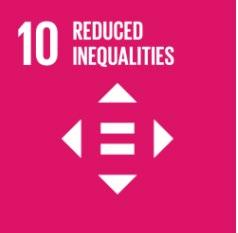
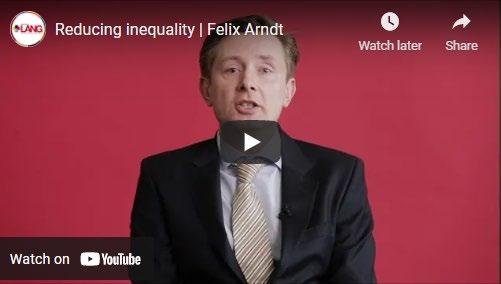
"People can often use and leverage what is generally understood as a disability and create opportunity to become a successf ul entrepreneur."


Ranging from people with a disability to those experiencing extreme socioeconomic conditions, Arndt's research looks at how these entrepreneurs overcame their perceived barriers. Arndt is hopeful that his research will lead to the development of better support systems for entrepreneurs and help motivate others to start their own business.




When professor Rogier Holtermans looks at the biggest culprits of energy consumption, he sees the building sector as one of the largest consumers. Although there are relevant sustainable and innovative solutions available, Holtermans understands that more work is needed to be done before the real estate industry widely adopts these solutions and leads a shift to sustainable technologies.



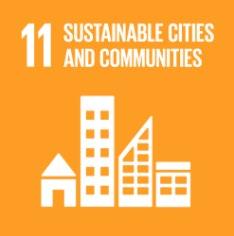

For Holtermans, the first step is leading research and developing empirical evidence to convince real estate developers, investors, and landlords that these sustainable technologies can both help their bottom line and reduce their environmental footprint.
Holtermans' research focuses on commercial buildings and how to incentivize building owners and investors to improve energy efficiency and adopt sustainable technologies.
"Research is showing that more energy -efficient and sustainable buildings have a price premium, a rent premium, and higher, more stable occupancy rates. So this provides a financial incentive for developers and building owners to invest in these new technologies."
“I believe that climate change is the biggest challenge of our generation.”

How do we convince people to take action towards addressing climate change? For professor Dr. Jing Wan, a powerful tool in the fight against climate change is marketing.
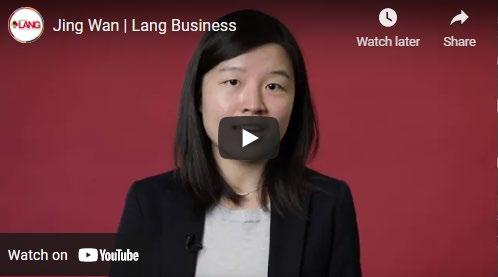
Marketing is often perceived as a contributor to climate change, but can be used as a force for good, says Wan. A tool to persuade people to take actions that are good for them, society, and the environment.
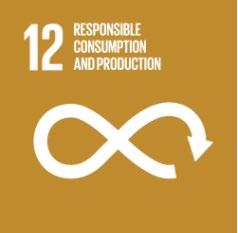
"There are actions that we do need to take immediately, actions that we can take to help sustain this environment, and we need to do something right now. If my research can even nudge a few people to take action, then I feel like I've done something worthwhile."
Wan is using her research to help marketers convince consumers to take immediate action that helps the world. For consumers, the short -term benefits often outweigh the long-term potential because it is difficult to conceptualize the future. This means consumers may overlook long-term benefits like environmental sustainability by focusing on short-term outcomes like price. Wan's research will help marketers overcome this short- vs long-term perspective, and nudge consumer behaviour towards sustainable products and consumption.
Faculty Impact :


Bruce McAdams - A New Tool in the Belt at Planet Bean
Marion Joppe - Exploring the Relationship Between Satisfaction, Trust and Switching Behavior, Repurchase Intention in the Context of Airbnb
Marion Joppe - The Role Of Trust In Building Rural Tourism Micro Firm Network Engagement: A MultiCountry Study
Talat Genc - Optimal Return and Rebate Mechanism in a Closed-loop SUpply Chain


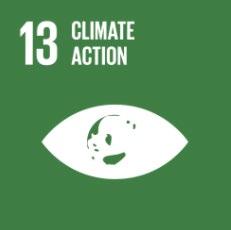
As businesses and governments unite to combat climate change, there is one industry which often gets overlooked as a serious contributor of global carbon emissions. While the manufacturing, and oil and gas industry receives the majority of the attention, the restaurant and foodservice industry is also a large contributor to greenhouse emissions. Challenges such as food and water waste, distribution of single-use plastics, overconsumption and overproduction in farming can be attributed to the restaurant industry, which reached an estimated $863 billion in sales in 2019.

Developing future business leaders that will integrate sustainable solutions within their restaurant operations is at the heart of associate professor Bruce McAdams teaching and research program. McAdams, strongly encourages the implementation of the three stakeholder approach students, researcher and community partner to provide multiple perspectives on how restaurants can further incorporate the United Nation’s Sustainable Development Goals (SDGs) into their business plan. The three stakeholder approach also encourages the involvement of Hospitality, Food and Tourism Management (HFTM) students to be engaged in this experiential learning opportunity.
“We’ve got our finger on the pulse of these sustainability issues. Not only are we working to increase awareness of sustainability amongst restaurant owners, but we are also building skills in our students the future change-makers of the hospitality, food and tourism industry,” says McAdams.

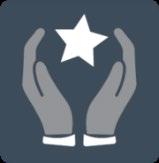


Integrating real-world, practical knowledge is critical for students to learn about the impact which sustainability efforts can have. As the founder of the University of Guelph Sustainable Restaurant Project (UGSRP), McAdams partners with local restaurants to highlight how sustainability can be implemented within their business plan. Now in its 10th year, McAdams organizes an annual symposium where restaurant owners come together to discuss sustainability best practices within the industry. The Project is cemented on three goals create a more sustainability-focused curriculum for Lang hospitality students, leverage the environmental focus of the student-run restaurant, Pj’s, as well as work with community partners to promote sustainability in their restaurants.
The UGSRP platform also operates as an active blog that translates and mobilizes sustainabilityfocused research for those in the hospitality industry as well as HFTM students this includes sustainable initiatives such as the environment, employee rights and fair trade imports.





A recent case study conducted by UGSRP focused on local, fair-trade coffee roaster, Planet Bean. Elaine Li, a UGSRP intern in her fourth year of Lang’s Bachelor of Commerce program, lead this discussion with Planet Bean to identify which SDGs they have implemented into their business plan and strategies to work towards a more sustainable future.
“Planet Bean is a testament to the endless possibilities when sustainability is incorporated in the business's core values, operations, s ystems and practices,” says Li. “Sustainability is a lifestyle for the individual, organizations and the community regardless of size, industry or other factors. We all have a role to play to make sustainability more than just a choice.”
Impressively, Planet Bean has accomplished 15 of the 17 goals.
“We must include students in this process as they are the future advocates and action takers to implementing sustainability,” says McAdams. “Sustainability is broad, and when we encourage discussion with this t hree stakeholder approach, we generate ideas that progress how businesses operate.”

As the restaurant industry attempts to recover from the global COVID-19 pandemic, which essentially stopped all aspects of the hospitality and foodservice industry, McAdam s says now is the time to put a greater emphasis on sustainable solutions.


“Full-service restaurants are going to struggle the most as things 'open up.' It's important that the great progress and momentum in becoming more environmentally responsible is not lost,” says McAdams.
Prof. McAdams 12 ways restaurants can curb its carbon emissions and be more sustainable?
• Switch to renewable energy,

• Eliminate single-use plastic
• Source sustainably raised beef
• Use “imperfect” fruits and vegetables
• Pour water only when asked - no lemons!
• No bread baskets - 40% waste
• Don't serve take out meals with packaged ketchup and napkins unless requested
• Thaw food in the refrigerator, instead of running water
• Monitor on and off times of kitchen equipment. Use only when needed
• Allow staff, who are often minimum wage workers, to take home quality and nutritional food that would be thrown out because of holding times.
• Low flush toilets and aerators on your kitchen taps
• Only run the dishwasher when it is full
Faculty Impact :
Ross McKitrick - Information aggregation in a prediction market for climate outcomes
Thanasis Stengos - Taming the SO2 and NOx emissions: evidence from a SUR model for the US



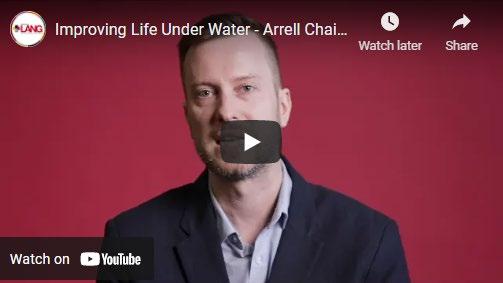
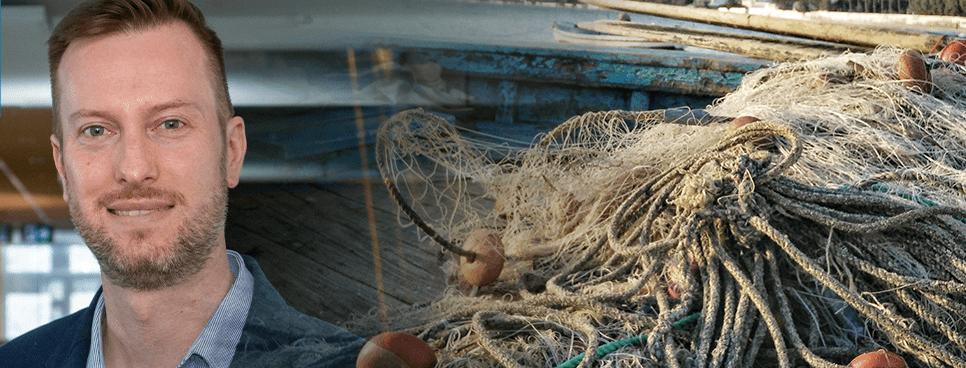



In 2050, there will be more than 10 billion people on earth to feed. This not only requires the production of more food but needs to also be delivered efficiently and sustainably. This requires a healthy and strong supply chain, from producer to consumer.
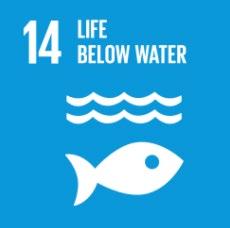
Dr. Simon Somogyi, Lang professor and Arrell Chair in the Business of Food, is a researcher in the area of agri-food value chain management and international market development. His research is driven by connecting food suppliers with end consumers with a focus on the beverage, seafood, and horticulture sectors.
One of Somogyi's recent research projects looks into the Chinese market for Canadian shellfish exports. There is a lot of competition in the shellfish market and that competition is based on price and quality. By speaking with members acro ss the shellfish supply chain in Canada and China, it was discovered that there is a market for sustainably caught shellfish and elements of sustainability are becoming part of that value proposition in the supply chain.
"Food is not made by people. It is made by people running businesses. No matter how passionate they are about the food they make, the place they make it in, how environmentally sustainable it is, it still has to be profitable...the challenge is to be able to produce profitability in food, but also being environmentally and socially sustainable to the place and the people who make it."




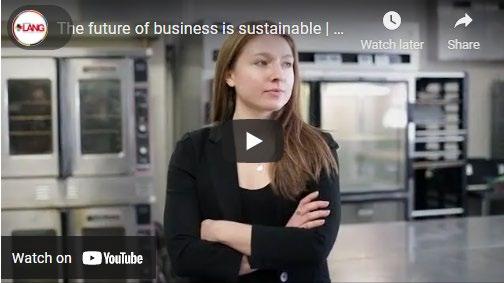


There has been an increased demand by consumers for businesses to adopt sustainable and ethical business practices. As this trend continues, businesses that want to stay competitive will need to prioritize corporate social responsibility (CSR) plans and better understand their impact on the environment.
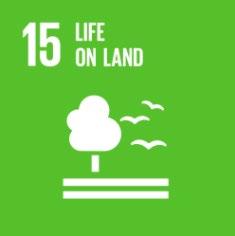

Emily Robinson, a master’s student at the Lang School, is using her research to explore how restaurants can overcome barriers to implementing sustainable practices and work towards the elimination of single-use plastics.
"If I want to have the kind of life that I want to have, with a long career and enjoy the world as I know it today, then we have to start preserving what we already have."
Empowering our youth to create change
Emily's passion for sustainability goes beyond her graduate research at Lang. In an effort to teach youth from the community about environmental stewardship and sustainability, Emily also leads a program on campus called My World, My Choice. The environmental outreach program empowers youth to change the world for a better place and gives them the tools to overcome barriers to change.

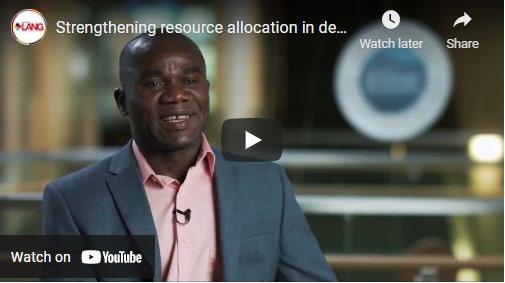


Ensuring access to justice for all and building effective, accountable institutions at all levels is critical in promoting peaceful and inclusive societies for sustainable development. That's why it is the sixteenth UN Sustainable Development Goal. Born in poverty on a small farm in Benin, assistant professor Philippe Lassou made a promise to himself to make a better life and find a way to help others. He left home at a young age to pursue an education and has made it his life’s work to seek ways of improving resource allocation in developing countries.

“When you want change, you have to be part of the change. And, sometimes, you have to be the one to initiate that change.”
People tend to look at development issues in developing countries as resource-based. However, Philippe's research suggests that it's not about how much resources are available, but that it is how those resources are allocated and used. His research focuses on accountability and resource management in developing countries in an effort to ensure that dollars reach those most in need. His research looks at resource allocation, distribution, and accounting processes at the government and institutional levels in an effort to leave a positive impact on practices and policies in developing countries.
Davar Rezania - A Scoping Review of Accountability in Social Entrepreneurship


Philippe Lassou - State of government accounting in Ghana and Benin
Statia Elliott - An application of stakeholder theory to advance community participation in tourism planning: The case for engaging immigrants as fringe stakeholders

Net Impact Guelph is a graduate chapter of an international organization that brings together staff, practitioners, faculty, and graduate students who are interested in using business as a force for good. The Guelph chapter is committed to developing partnerships and creating an alliance of people who are passionate about sustainability.
The United Nations' Sustainable Development Goals are at the heart of Net Impact Guelph. In an effort to generate productive conversations around sustainability, Net Impact Guelph organizes events throughout the year that bring people together to talk about sustainable practices and integrate business with sustainable solutions.
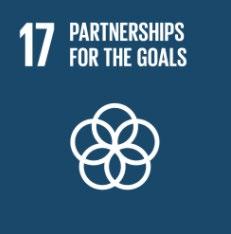

In 2019, Net Impact Guelph hosted Beyond Business as Usual, an event that invited researchers from across campus to present their research and develop cross-discipline partnerships.
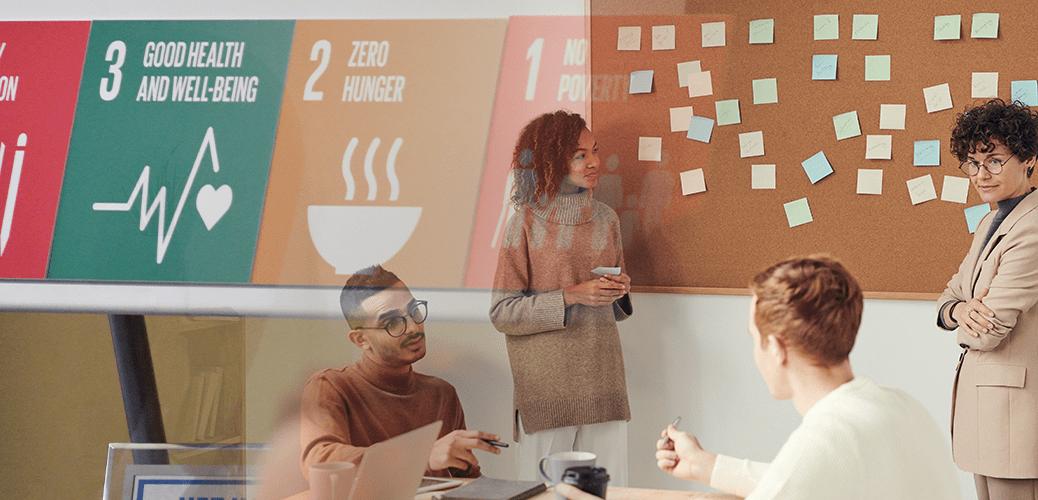
"The event was a way to take business and integrate it with sustainable research and solutions. We had researchers in the backgrounds of sociology, environmental science, engineering, management, and computer science. There was something enriching for everyone who showed up."





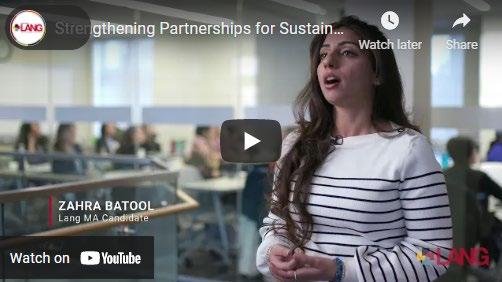


Creating an alliance of students, researchers, and practitioners who are committed to a sustainable future.
The Gordon S. Lang School of Business and Economics at the University of Guelph is committed to developing leaders with a social conscience, an environmental sensibility and a commitment to their communities. We offer a wide range of specialized programs in business and economics across undergraduate, graduate and professional education.
Below are examples of s ustainable b usiness/responsible management courses in our graduate and undergraduate p rograms :
Lang MBA


Course Name
BUS*6600 Sustainable Value Creation
Course Description
Many organizations have redefined their business strategies in line with principles of sustainability in order to maximize value creation for the organization and its stakeholders. In this course students will critically examine these sustainability drivers and strategic approaches to value creation.
BUS*6300 Business Practices for Sustainability

BUS*6500 Governance for Sustainability

BUS*6850 Marketing Strategy
Lang BComm
Course Name
MGMT*1000 Introduction to Business
This course focuses on critical strategic and managerial issues related to sustainability and introduces students to concepts linking organizational strategies and sustainability principles. It explores how managers can integrate consideration of the environment and society into business strategies and business practices to improve competitive advantage and create environmental, social and economic value.
This course introduces MBA students to the rise of environmentalism and state-led environmental management, and the evolving world of environmental governance. Coupled with this review is coverage of some key contemporary env ironmental issues of relevance to business executives such as climate change and fisheries decline.
An advanced course for those specializing in marketing. Deals with marketing theories, models, and specific subsets of marketing such as pricing, consumer and industrial-buyer behaviour, distribution, services, and service-delivery concepts

Course Description
This course is intended for B.Comm. students in semester one. It provides students with an understanding of the evolution of forms of business organization and their role in social and economic development. The main focus is on current economic, social and environmental issues that impact business organizations and which, in turn, are impacted by business decisions. Ethical considerations and the concept of sustainability are essential components. Students develop oral and written communication skills in small seminar groups.
MGMT*1200 Principles of Management
This course provides an overview of the role of managers in the modern organization. Students will learn about the history of management theory and will examine in depth the major management functions of planning, leading, organizing and controlling. The concepts of management ethics and sustainability are also introduced.


This course provides students an opportunity to examine a comprehensive range of t opics and issues related to business and sustainability and aims to explore the implications of changing stakeholder expectations, and opportunities for organizational sustainable value creation. Key topics will include CSR theories and frameworks, global issues and role of business in society, socially responsible investing, green consumption, CSR and firm competitive advantage, reputation, corporate governance and ethics, regulation and social/environmental reporting.
This course focuses on the various aspects of tourism policy, planning and development with a heavy emphasis on responsible choices. Tourism is reviewed in a global context and its role, both positive and negative, in socio-economic development, poverty alleviation, climate change, and other topics of current importance are explored.
This course covers the application of managerial functions to restaurant and foodservice operations with the emphasis on teamwork and the principles of food production and service in a sustainable commercial restaurant setting. Students gain hands -on understanding of scheduling, purchasing, costing, nutritional analysis, and food safety while operating a stud ent run restaurant.
This course focuses on the development, design and management of the hospitality built environment. It explores issues related to the planning and development of hospitality and sporting event properties, provides an introduction to property and asset management as related to the hospitality and sport industry, and examines universal design as applied to the ‘servicescape’, all within the broad context of sustainability.

This course introduces students to the economic experience of developing countries, the ways in which economists try to understand it, and the implications for policy. The basic tools of economic analysis as taught in the introductory courses are used to analyse topics that may include theories of growth, trade, education, foreign investment, exchange rates, labour markets, the role of government, environmental sustainability and strategies related to agriculture, population, industry and investment.
S tudents across the University of Guelph can elect to add a minor in Sustainable Business, adding valuable skills and knowledge to their primary program of study. Students in the minor engage in discussion, critical analysis and learning on issues of social and environmental responsibility. Changing societal expectations are creating new challenges for business and leaders. Rising demands from civil society and other business stak eholders, such as consumers, communities, employees and government, and the global commitment to Sustainable Development Goals have created an intensification of demands for responsible behaviour. Lang’s minor in Sustainable Business integrates a multi-dis ciplinary view of sustainability issues with a crucial understanding of citizenship, social responsibility, sustainability and diversity issues.
By taking this minor, students will advance competencies in the following areas:

• Sustainability and Social Res ponsibility
• Global Citizenship and Sustainability Issues
• Cultural Diversity
The Gordon S. Lang School of Business and Economics was named one of the world’s nine “Transformational Schools” by the Positive Impact Rating for Business. The Positive Impact Ranking included 30 schools in the 2020 Ranking, with nine schools in the ‘Transforming’ Level and 21 in the Progressing Level. Revealed at the World Economic Forum in Davos, the Positive Imp act Rating (PIR) aims to measure how business schools contribute to solving societal challenges beyond contributing to business and the economy.
Lang students were invited to participate in this inaugural ranking of business schools that were assessed on activities that are focused on becoming the “best for the world”
The ranking provides an additional approach to traditional business school rankings and focuses on assessing the perceptions of positive social impact and alignment with the United Nations’ Sustainable Development Goals.
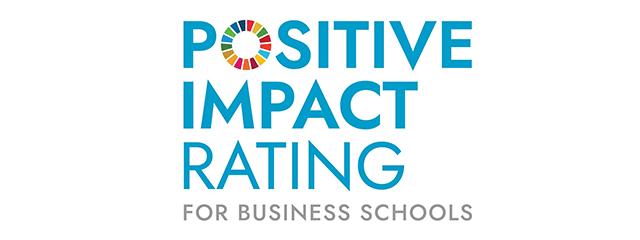


In collaboration with the Guelph Chamber of Commerce, the Gordon S. Lang School of Business and Economics at the University of Guelph presented Leading Through Crisis, a webinar series for organizational leaders in the profit and not -for-profit sectors. The webinar series featured expert panelists from Lang and the local community and covered topics related to managing through the challenges caused by COVID -19. Topics covered during the webinar series included:
• Strategic Resiliency and Opportunity, featuring Jim Estill, President and CEO of Danby Appliances and Dr. Felix Arndt, John F. Wood Chair in Entrepreneurship
• Leading with Purpose, featuring Julia Christensen Hughes, former dean of the Lang School and Chris Houston, business consultant and founder of Telosity.
• Employee Morale and Well -Being, featuring prof. Jamie Gruman and associate prof. Sandeep Mishra
• Economic Continuity, featuring Jim Jarrell, President and COO of Linamar Corporation, and finance prof. Dr. Nikola Gradojevic
• Human Resource Planning Post COVID-19, featuring Dr. Nita Chhinzer, Department of Management at Lang, Sandra Casarin, HR Manager, Chapter Chair of Guelph & District HRPA, and Greg Pinks, Chief Leadership Officer at Axiom Performance Inc.
• Sustainability Beyond COVID-19, featuring Dr. Rumina Dhalla, Sustainability Coordinator at Lang, and Chris Coulter, CEO of Globescan
• Rebuilding Tourism and Hospitality, featuring Dr. Marion Joppe, School of Hospitality, Food and Tourism Management at Lang, and Lisa LaVecchia, President and CEO of Destination Ontario

Lang students are actively working together to build awareness and catalyze change to create a more equitable future. Faculty, staff and students are committed to the HeForShe movement by breaking gender stereotypes and improving gender equity through several HeForShe initiatives.
In 2019, Lang teamed up with Gryphon Football and the College of Engineering and Physical Science to host an afternoon dedicated to the HeForShe campaign. One of Canada's most influential female business leaders, FedEx Canada president and best-selling author Lisa Lisson, joined students on campus and led a public talk about resiliency and finding strength in the hardest of times.
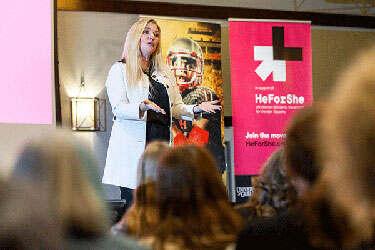
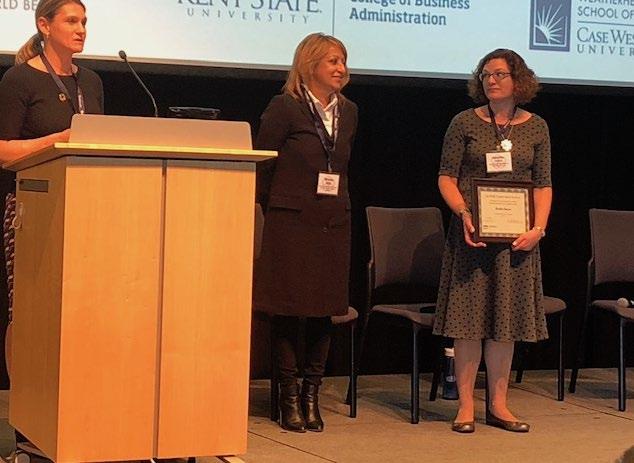
Lang business professor and Director the Institute of Sustainable Commerce, Rumina Dhalla, was announced the recipient of the Excellence in Service award from the United Nations PRME Chapter North America. The award is one of three Excellence Awards, which recognize the ongoing efforts of individuals in advancing the six United Nations Principles for PRME in the areas of research, teaching and service.

Lang has a long tradition of student engagement in sustainable-focused student clubs, events and case competitions.

The inaugural three-day Student Conference was held November 2019 with a vision of a 100% sustainable conference. This was the first sustainability conference organized by the Lang Student Association. Lang business students welcomed over 100 student delegates at the Lang Sustainability Conference, the largest student -run conference at the University of Guelph. The mission of the Lang Student Association Sustainability Conferences is to be Canada’s hub for developing business leaders for a sustainable world –for people, planet, profit.
Aim2Flourish
2019: The Business of Doing Good University of Guelph students were among the AIM2Flourish 2019 prize finalists in 2019 and 2020. An international academic competition supported by the United Nations, AIM2Flourish invites students to submit stories of positive business innovations that align with UN Global Goals and advance the Sustainable Development Goals. Four teams of Lang students who were announced as AIM2Flourish 2020 Flourish Prize finalists, which includes students from universities in over 90 countries. They are among 76 finalist s chosen from over 800 submissions.
AIM2Flourish is the world’s first higher-education experiential curriculum, story platform, and prize for the Global Goals. Through the lens of the UN Global Goals for Sustainable Development, students were tasked with identifying business innovation models that promote economic prosperity while contributing to a healthy world and human well-being, and to share these stories on the global AIM2Flourish website.


In our 2018 S IP Report, Lang made four specific commitments to priorities related to PRME. Below are those commitments and outcomes:
Have our MBA ranked by Corporate Knights “Better World MBA” rankings.
Hold an undergraduate case competition, focused on industry application of sustainability
Establish a centre to support and advance research, curricular innovation and community engagement within sustainability
Lang’s MBA, Sustainable Commerce was ranked #1 in Canada and #6 in the world by Corporate Knights “Better World MBA” rankings.
The Lang Student Association have hosted two Sustainability Conferences, the first with a Case Competition and the second with a Pitch Competition.
The proposed Institute for Sustainable Commerce has been approved by U of G Senate and will launch in 2021.
We continue to be fully engaged with PRME both as PRME Champions and with PRME North America Chapter. Lang is one of the 36 global business schools recently named Champion of Principles for Responsible Management Education (PRME).

GRLI Leadership and Governance: we play a leadership role in GRLI Leadership and Governance:
Engage with other PRME Champions business schools; Globally responsible Leadership Initiative (GRLI); AIM2Flourish; and contribute to shared projects

• Dr. Rumina Dhalla, Director, Institute for Sustainable Commerce was appointed Guardian of GRLI
• Dr. Julia Christensen Hughes, Former and Inaugural Dean of the Gordon S. Lang School of Business and Economics was named a Director of GRLI.
• We participated in the Deans and Directors cohort in Burlington, Vermont and Porto, Portugal.
• Our student teams consistently appear on the list of Finalists for Aim2FLourish
We are committed to engaging and demonstrating leadership in global initiatives. As we look ahead to the next two years, the Gordon S. Lang School of Business and Economics commits to the following priorities, as they relate to the PRME.
Launch the Institute for Sustainable Commerce at Guelph 2021
Audit and Action on Sustainable Practices @ Lang 2022.
Engage with other PRME Champions business schools; Globally Responsible Leadership Initiative (GRLI) and contribute to shared projects.
Continue to build reputational excellence through rankings
Ongoing
Ongoing